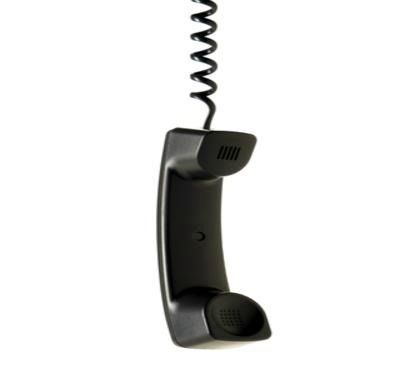Phone Scammers Fleece Retiree Out of House and Home

Nigerian email scammers have been conning unsuspecting Westerners for years. More recent forms of the "advance-fee" fraud have taken on the form of emails promising foreign-lottery winnings.
But a poor retiree from Baltimore was fleeced out of his life savings and even his house — entirely over the telephone.
It all began about six years ago, when someone pretending to be from the U.S. government called Norman Breidenbaugh and his wife Cindy at home.
The caller, believed now to be a scammer from outside the U.S., told the Breidenbaughs they'd won $2.5 million in a foreign lottery — but that the couple needed to send in $2,000 for processing fees before they could collect the winnings.
"[Cindy] said send him the money, and I sent him the money, and that was the beginning," Norman Breidenbaugh told the Baltimore ABC affiliate WMAR-TV.
Over the next few years, callers identifying themselves as representatives of the Border Patrol, FBI and Secret Service told the Breidenbaughs they'd won even more cash, even a Mercedes-Benz. But the Breidenbaughs had to send more money.
The Breidenbaughs refinanced their house in order to pay the fees, which were wired to banks in Jamaica and Canada. Yet no prize money ever arrived.
Sign up for the Live Science daily newsletter now
Get the world’s most fascinating discoveries delivered straight to your inbox.
[8 Ways Seniors Can Avoid Identity Theft]
Even worse, the scammers discovered Cindy had cancer and dementia and needed expensive treatments.
"Well, if you send us the money, then we can send you the sweepstakes and you can have the money to bring her home and bring in help," Norman Breidenbaugh said the callers told him.
All told, the Breidenbaughs sent an estimated $400,000 to the scammers.
Cindy died in 2009, and last year Norman lost their house after he couldn't keep up with the property taxes.
"I don't have a pot to go in or a window to heave it out of," he told Baltimore CBS affiliate WJZ-TV. "I lost everything."
Unfortunately, there's not much authorities in the U.S. can do, since the callers are believed to be overseas. But the Jamaican government is planning to crack down on similar scammers.
That's too late for Norman Breidenbaugh, who is now living with friends.
"I never told anybody what kind of mess I was in because I was too proud, too stubborn to let anybody know it," he told the Baltimore Sun. "I'd like to wring the necks of these people."
This story was provided by TechNewsDaily, sister site to LiveScience.












